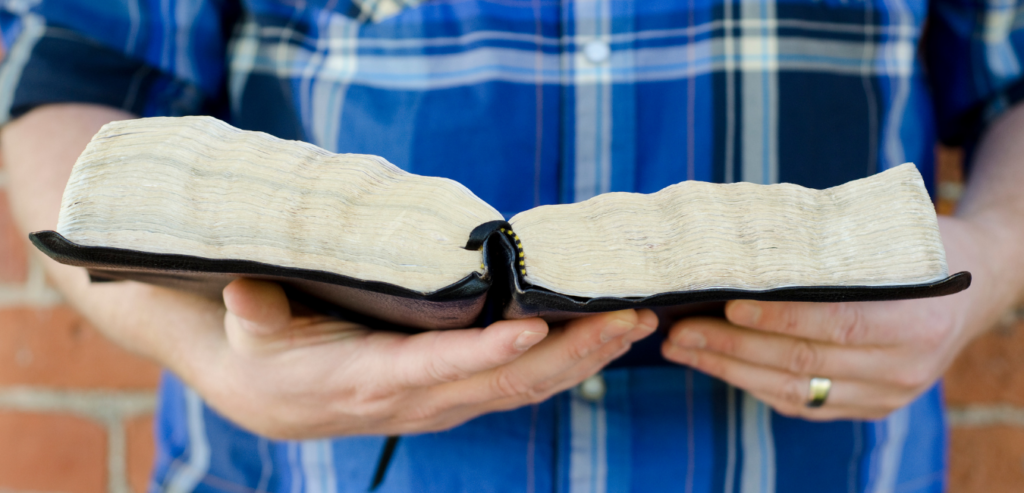Christians who struggle with compulsive sexual behaviors almost always feel ashamed because of it. And if you’re the spouse, partner, close friend, or family member of that person, you may feel shame, too. It’s not your fault, but it’s there.
The relationship between Christians, sex addiction, and shame is strong. Breaking that relationship and understanding that you can be flawed and still loved is critical to recovery.
Our Reality
Being a Christian and engaging in compulsive sexual behaviors causes us to feel shame. When we’re acting on our sex addiction, we know we’re crossing lines we shouldn’t cross. We’re going to feel ashamed.
That sense of shame is painful, even excruciating. That’s why we compartmentalize and dissociate, to avoid the pain that comes with shame.
So why do we use shame? To stop our behaviors. To help motivate ourselves (or others) to make changes for the better.
But shame doesn’t work that way. Rather than becoming an internal force that causes us to stop our compulsive behaviors, shame works the opposite way. Shame reinforces our dependence on the behaviors we’re trying to change.
When we’re ashamed, we often hear an inner voice that says something like:
- “How can you behave this way when you say you’re a Christian?”
- “You’re a liar and a hypocrite; how can you say you believe in God and do this stuff?”
- “If anyone knew what you think about and the things you do they wouldn’t want anything to do with you.”
That voice within us is a function of our genuine conscience. It’s rooted in guilt, but it distorts the legitimate message of accountability.
The part of us that voices these shame messages is trying to help us, but our development distorted it. It’s shifted from registering guilt to using shame to try to control our behavior. And using shame to control our behavior will never work.
But because the shaming part within us is trying to help us, and because its accusations contain some truth, we have a tough time recognizing that this part is hurting us rather than helping.
Why Shame Doesn’t Work
The messages of shame are, “There’s something wrong with me. I will never get this right. I’m a lost cause.”
The effects of shame messages are to make us feel hopeless, miserable, and alone. Since we’ve already developed a pattern of numbing our uncomfortable emotions so we don’t feel, that’s what we go back to. Shame drives us right back into our compulsive behavior.
Going back to our addictive behavior reinforces the shame messages, “See? You’re a loser. You’re never going to beat this. God must be so disappointed with you.”
So, is there not an appropriate use of shame for Christians? No. It’s a semantic issue. There is a proper use of guilt for the Christian, but not shame.
Hebrews 12:1-2 instructs Christians to engage our life in Christ like a race, a marathon really, with our focus on Jesus.
“The founder and perfecter of our faith, who for the joy that was set before him endured the cross, despising the shame, and is seated at the right hand of the throne of God.”
Jesus’ act of ascending the cross was an act of fully identifying himself with each of us in the depth of our powerlessness, our vulnerability. In a cosmic exchange that is difficult to understand fully, Jesus experienced all of the guilt, loss, and despair common to all of his brothers and sisters.
A victim of Roman execution, he was brutalized, tortured, humiliated, and hung naked. And the writer of the Letter to the Hebrews said he despised the shame.
What does that mean? Did he ignore it? Wasn’t he affected by it? I think it means he saw it for what it is, a lie. He was suffering, and he was in pain. But he wasn’t a loser. He wasn’t worthless. And neither are we.
True Identity
Shame messages are inappropriate because they lie to us about who we are.
We are not losers because we struggle with compulsive behavior. We’re someone who needs help, needs healing.
God is not disappointed with how badly we’re doing. God wants to help us, heal us, and draw us close.
Shame is a lie about who we are. So, what is the truth? The truth is we’re known, loved, and invited to live a better life. That’s where guilt can be useful when shame can’t.
Guilt
Guilt is the conviction “I have done something wrong.” Shame is the message, “There is something wrong with me.”
Accepting our guilt when we behave in ways that contradict our values is appropriate and helpful.
When I feel ashamed, I want to hide. When I do something that makes me feel ashamed, I want to hide.
But when I register guilt, I want to change, repair, or fix what I did wrong.
And while this is counter-intuitive, guilt, in a Christian framework, actually reinforces two healthy and redemptive truths:
- We are all guilty (so I belong!)
- We are all loved and desired (I am wanted!)
So, for the Christian, is there anything good that comes out of feeling ashamed or shaming others? Is there a positive or redemptive use of shame?
No. Shame is not healthy, appropriate, necessary, or useful.
The Gospel for Sexual Strugglers
When we are guilty, fearful, or failing, how does Jesus approach us?
Matthew 11:28-30, “Come to me, all who labor and are heavy laden, and I will give you rest. Take my yoke upon you, and learn from me, for I am gentle and lowly in heart, and you will find rest for your souls. For my yoke is easy, and my burden is light.”
Isaiah 42:3, “…a bruised reed he will not break, and a faintly burning will he will not quench….”
For each of us who struggle as Christians with compulsive sexual behavior disorder, if we totally change our lives and never slip again, Jesus won’t love us any more than he does right now.
And if we continue to slip, relapse, and struggle, he won’t love us any less.
Jesus loves you just as you are, and, at the same time, Jesus doesn’t intend to leave you where you are.
Healing Christians from Sex Addiction and Shame
We at Boulder Recovery are here to help you take your next steps in living the life you want, the life you are capable of, the life of rebuilding healthy intimacy with God and others.
A life free of shame.
Contact us today to learn more about our 14-Day Men’s Intensive treatment for sex and porn addiction and our Partner Support Program.






